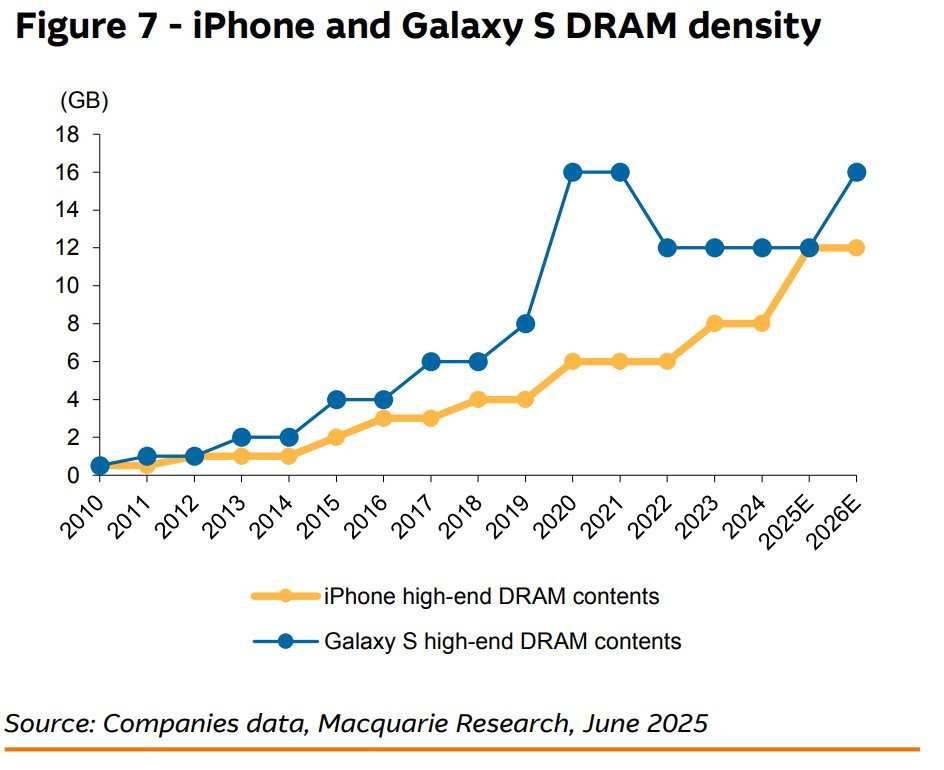There was a time when Samsung’s Galaxy S series held a significant lead over iPhones in terms of RAM capacity. However, this is changing quickly as AI-driven features demand greater memory resources.

Macquarie Research predicts Galaxy S RAM will increase to 16GB in 2026, while iPhone RAM will rise to 12GB in 2025 and remain unchanged through 2026. Photo: Macquarie Research
According to Macquarie Research, RAM capacity in high-end Android smartphones is on the rise.
While the Galaxy S25 line already includes 12GB RAM (with a 16GB variant of the Galaxy S25 Ultra available in South Korea), Macquarie predicts Samsung will increase RAM in the Galaxy S26 series to 16GB by February 2026.
This upgrade aims to keep Samsung’s flagship phones competitive with Chinese brands, which often equip their top-tier models with the latest and most powerful hardware.
Previously, more RAM was associated with improved multitasking. Today, however, higher RAM is crucial for AI-centered smartphones.
Apple is a prime example. The iPhone 16e is equipped with 8GB RAM, the minimum required to run Apple Intelligence.
While Samsung plans to further boost RAM in its next flagship, Apple is expected to maintain 12GB RAM in the iPhone 17 series set to launch in September this year.
Standard iPhone 17 models may still have only 8GB RAM-sufficient to support Apple Intelligence.
Analyst Ming-Chi Kuo from TF International predicts all iPhone 18 models, scheduled for release next year, will be upgraded to 12GB RAM.
In recent years, Apple has significantly narrowed the RAM gap between iPhones and the Galaxy S series. At one point, the difference was a full 10GB, with the 512GB Galaxy S20 Ultra packing 16GB of RAM, compared to just 6GB in the iPhone 12 Pro Max.
By early next year, the gap is expected to shrink to just 4GB, with the Galaxy S26 series offering 16GB RAM and all iPhone 17 models predicted to feature 12GB.
While Apple Intelligence has yet to fully impress and many users still underutilize AI features, it’s clear that the rise of AI has forced Apple to escalate its RAM game.
A decade ago, iPhone enthusiasts often argued that iOS didn't require as much RAM as Android, justifying the hardware disparity.
Today, users across both platforms seem to agree-more RAM is always better.
Du Lam (PhoneArena)